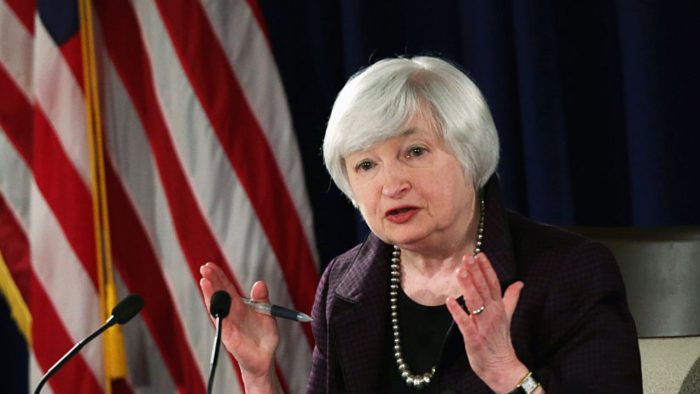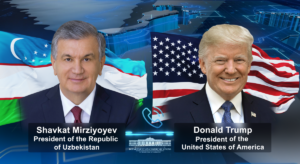Yellen to visit Beijing, US seeks to ‘responsibly manage’ China ties

Washington, The Gulf Observer: Treasury Secretary Janet Yellen is set to visit Beijing this week, the United States has said, marking the second trip by a cabinet official to China since ties between the world’s top two economies deteriorated earlier this year.
Yellen is expected to discuss with her counterparts the importance for both countries “to responsibly manage our relationship, communicate directly about areas of concern, and work together to address global challenges,” said the Treasury Department in a statement on Sunday.
Yellen’s planned July 6-9 trip comes just weeks after Secretary of State Antony Blinken met China’s top leader President Xi Jinping and Foreign Minister Qin Gang in Beijing in June.
Blinken was the highest-ranking US official to visit the Chinese capital in nearly five years, and Xi said on the rare trip that he saw headway in the strained relationship between Washington and Beijing.
In Beijing, Yellen will discuss how the United States views its economic relationship with China, a senior Treasury official said on Sunday.
She will meet with senior Chinese officials and leading US firms, the American spokesperson said without providing specifics.
While the US seeks to secure its national security interests and protect human rights, actions to this effect are “not intended to gain economic advantage over China,” the official added.
Washington also looks towards “healthy” ties with Beijing and does not seek to decouple the economies, while pursuing cooperation on urgent challenges like climate crisis and debt distress, the American official said.
The United States does not expect a “significant breakthrough” from this initial trip, but it does aim to build longer-term channels of communication with China, the Treasury official added.
Restarting engagement
“I think the US government is clearly trying to put some floor under the deterioration of the economic relationship,” Edward Alden, a senior fellow at the Council on Foreign Relations (CFR) told AFP, speaking on the Treasury secretary’s intentions to visit China.
A Yellen trip could “restart a steady pattern of engagement at lower levels,” he said, adding that the US has shifted from being ambiguous about how far it was supporting decoupling to explicitly adopting a strategy of “derisking” instead.
This means “focusing on a narrower range of items that have strategic importance, trying to build fences around those items, but otherwise trying to continue to nurture a reasonably robust US-China economic relationship,” Alden said.
But observers do not expect a quick resolution to tensions.
President Joe Biden’s administration is considering a programme to restrict certain US outbound investments involving sensitive technology with key national security implications – an issue that has riled Chinese officials.
Other possible sticking points include amendments to China’s anti-espionage law which recently broadened the definition of spying while banning the transfer of information relating to national security – a move that has spooked foreign and domestic businesses.
The senior Treasury official told reporters Sunday that Washington intends to communicate its concerns over the law.
While significant disagreements may not be resolved in a single trip, the US seeks to deepen and increase the frequency of communication with China and to “stabilise the relationship,” avoiding miscommunication and expanding collaboration where possible, the official said.
Global growth, debt problems
For the US, discussions with officials from China “are important to help spur stronger global economic growth and to tackle the mounting debt problem of the Global South,” said Wendy Cutler, vice president at the Asia Society Policy Institute, discussing a prospective Yellen visit.
On Beijing’s part, officials are “looking for concrete steps taken by the US to show that ‘decoupling’ and holding back China is not the ultimate goal of the United States,” Cutler added.
But despite US policies that have drawn ire from Beijing, officials likely have an awareness of China’s continued export dependence and the importance of the US market, CFR’s Alden said.
“I think that there’s a growing awareness in Beijing that China also needs to play a role in nurturing this economic relationship with the United States, because it’s simply too important to China as well,” he added.
Washington and Beijing recently have clashed over trade, human rights and other issues.
Relations came under further stress this year when the United States shot down a Chinese balloon it said was used for surveillance – a claim China strongly denied.
But Blinken’s reception in Beijing has been seen as a symbolic sign of lowering temperatures.


